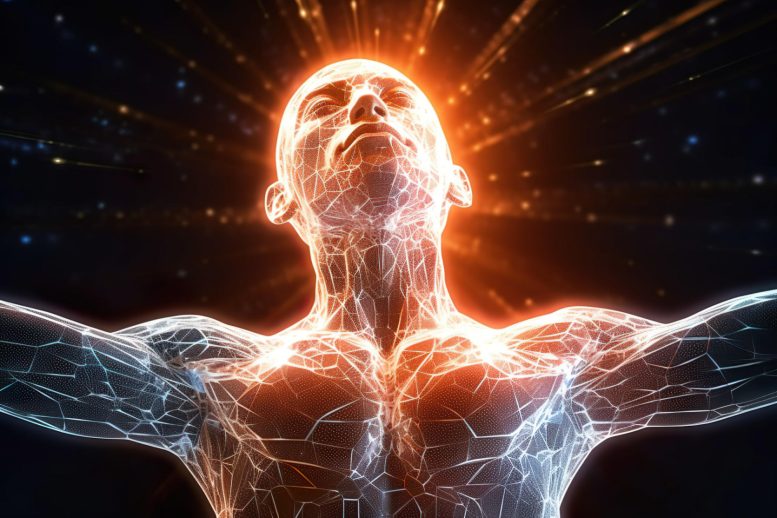
King’s College London researchers found that AI-based aging clocks using blood metabolite data can predict health and lifespan, with accelerated aging linked to higher health risks. Non-linear machine learning algorithms, especially Cubist regression, were most effective.
Researchers at the Institute of Psychiatry, Psychology & Neuroscience (IoPPN) at King’s College London have conducted a detailed study to assess artificial intelligence-based aging clocks, which estimate health and lifespan by analyzing blood data.
The study involved training and testing 17 machine learning algorithms using data on blood markers from over 225,000 participants in the UK Biobank, who were aged 40 to 69 at the time of recruitment. The researchers evaluated how accurately these metabolomic aging clocks predict lifespan and how strongly they correlate with various measures of health and aging.
Metabolomic age, referred to as “MileAge,” reflects a person’s internal biological age based on blood metabolites—small molecules generated during metabolism, such as those produced when food is converted into energy. The difference between a person’s metabolite-predicted age (MileAge) and their actual chronological age, called the MileAge delta, indicates whether their biological aging is accelerated or decelerated.
Study Insights and Key Findings
The study was published in Science Advances and is the first to comprehensively compare different machine learning algorithms on their ability to develop biological aging clocks using metabolite data, leveraging one of the largest datasets globally. It was funded by the National Institute for Health and Care Research (NIHR) Maudsley Biomedical Research Centre (BRC) and used data from the UK Biobank.
Individuals with accelerated aging (i.e., with a metabolite-predicted age older than their chronological age) were, on average, frailer, more likely to have a chronic illness, rated their health worse, and had a higher mortality risk. They also had shorter telomeres (‘caps’ at the end of chromosomes), which are a marker of cellular aging and linked with age-related diseases such as atherosclerosis. However, decelerated biological aging (with a metabolite-predicted age younger than chronological age) was only weakly linked with good health.
Aging clocks could help spot early signs of declining health, enabling preventative strategies and interventions before disease onset. They may also allow people to proactively track their health, make better lifestyle choices, and take steps to stay healthy for longer.
Expert Perspectives on Aging Clocks
Dr. Julian Mutz, King’s Prize Research Fellow at the IoPPN and lead author of the study, said: “Metabolomic aging clocks have the potential to provide insights into who might be at greater risk of developing health problems later in life. Unlike chronological age, which cannot be changed, our biological age is potentially modifiable. These clocks provide a proxy measure of biological age for biomedical and health research, which could help shape lifestyle choices taken by individuals and inform preventative strategies implemented by health services. Our study evaluated a broad range of machine learning approaches for developing aging clocks, showing that non-linear algorithms perform best at capturing aging signals.”
Professor Cathryn Lewis, Professor of Genetic Epidemiology & Statistics, Co-Deputy Lead of the Trials, Genomics and Prediction theme at the NIHR Maudsley BRC, and senior author of the study, said: “There is substantial interest in developing aging clocks that accurately assess our biological age. Powerful big data analytics can play a critical role in advancing these tools. This study is an important milestone in establishing the potential of biological aging clocks and their ability to inform health choices.”
The researchers found that a metabolomic clock developed using a specific machine learning algorithm, called Cubist rule-based regression, was most strongly associated with most health and aging markers. They also found that algorithms which can model non-linear relationships between metabolites and age generally performed best at capturing biological signal informative of health and lifespan.
Reference: “Metabolomic age (MileAge) predicts health and life span: A comparison of multiple machine learning algorithms” by Julian Mutz, Raquel Iniesta and Cathryn M. Lewis, 18 December 2024, Science Advances.
DOI: 10.1126/sciadv.adp3743
The study was funded by the National Institute for Health Research.
Never miss a breakthrough: Join the SciTechDaily newsletter.
3 Comments
I wonder how much it cost to find out eating right and exercising improves age related health. This stuff is beyond stupid. The secrets to good health go back thousands, not hundreds of years. There is not much new under the sun. These people are exactly like marketing people, repackaging the old to look like something new was discovered and is important. Well, they got the grants and that is all that matters because now they can get more grants to pay salaries. Ridiculous.
These metabolites that are “aging” us are produced by the microbes living in and on us. As we live we are exposed to numerous pathogens, toxins and nutrient deficiencies that can create a worsening dysbiosis of our microbiome. By replacing our microbiome with young, healthy and compatible microbiota transfers from healthy, young, well-matched donors, we can essentially reboot ourselves. With our new and refreshed young microbes producing again the right metabolites at youthful levels, we can restore our health and give ourselves a more youthful outcome. We are naturally superorganisms from our DNA and mitochondria up and we only exist in a state of homeostasis if our microbial selves function optimally. All our organs possess their distinct microbial communities, not just the gut. Key communities exist throughout the body; including one’s oral microbiota, with its inter-kingdom biofilms and signaling systems, is a portal to the brain and GI tract and must be exquisitely maintained for health.
Beautifully said Bredna. My last physical with my doctor a month ago revealed I am de-aging. I made a lot of positive changes in my life in the last few years, quit drinking, changed eating habits, ramped up my exercise and lost about 40lbs. I’m 60 and feel like I’m in my 40’s. This refreshing microbes process you speak of helps explain what happened to me, thank you. Joe